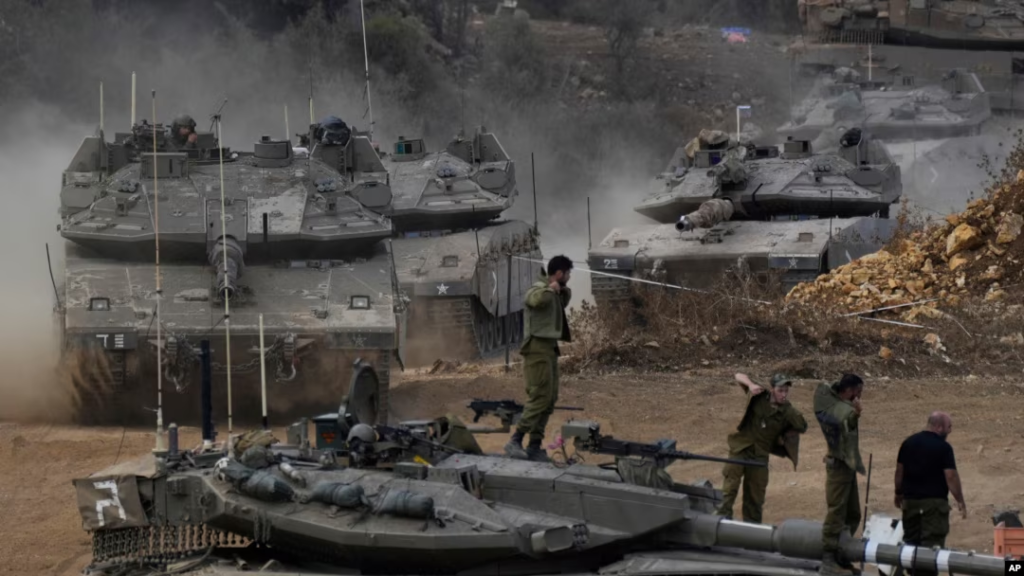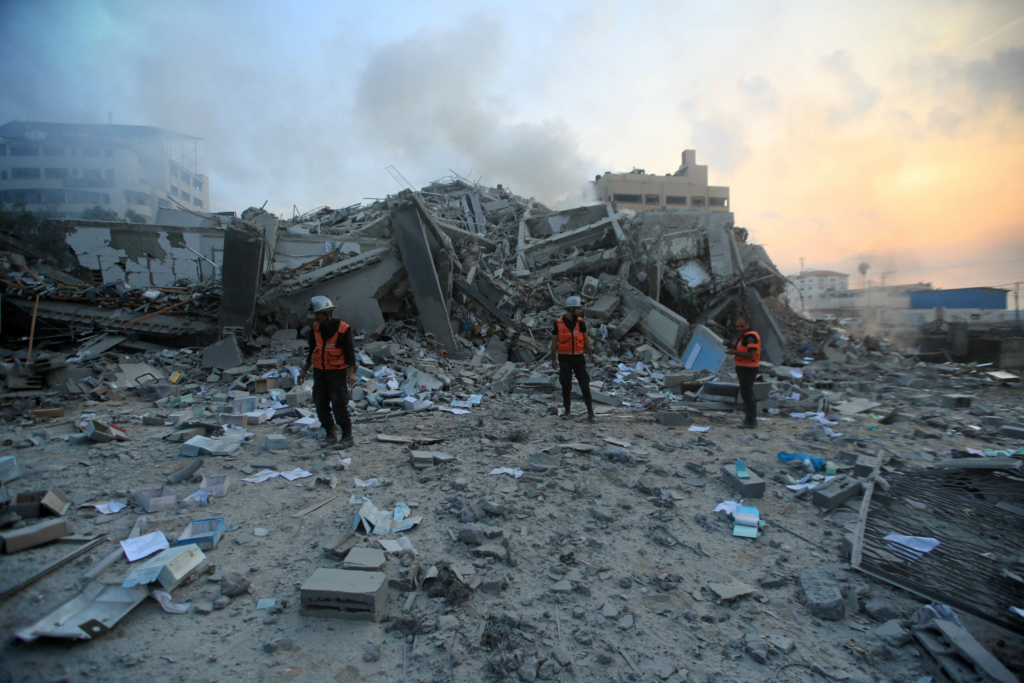Israel has imposed strict censorship and blocked access to several military sites following a missile attack by Iran, escalating tensions between the two nations. The Iranian operation, dubbed “Operation True Promise 2,” targeted key Israeli military and intelligence bases in retaliation for previous actions taken by Israel.
While Israeli officials claim that most of the missiles were intercepted by their defense systems, videos and images circulating on social media paint a different picture, showing significant damage and large craters at the impacted sites.
The missile attack marks a serious escalation in the long-standing conflict between Israel and Iran, with both countries exchanging conflicting claims about the effectiveness of the strike.
According to Iran, 90% of the missiles successfully hit their intended targets, while Israel downplays the impact, stating that their defense systems managed to neutralize most of the incoming projectiles. However, Israel’s decision to close and censor access to these military sites has made it difficult to verify the extent of the damage.
Contradicting Narratives Amid a Tense Situation
The stark difference in narratives between Israel and Iran is not unusual, as both countries have a history of presenting their version of events during military confrontations. Israel’s interception claims have been countered by Iran’s assertion of success, creating confusion over what truly transpired.
Read : Nasrallah’s Son-In-Law Killed in Israeli Strike in Syria
Reports indicate that the missile strikes targeted highly sensitive military installations, possibly impacting Israel’s military capabilities. However, due to the censorship and restricted access to these sites, independent verification remains challenging.
In recent days, images of large craters and damaged infrastructure have surfaced, indicating that at least some of the missiles breached Israel’s defenses.
Read : Israeli Foreign Minister Threatens Iran, Saying It ‘Deserves to Be Destroyed’
These visuals suggest that the missile attack may have caused more damage than Israeli officials are willing to admit. The Israeli government’s decision to block entry to these sites has fueled speculation about the actual scale of destruction.
The History of Conflict and Current Tensions
The missile attack is a continuation of the hostilities that have defined the relationship between Israel and Iran for decades. Both nations have engaged in military confrontations and proxy wars in the region, particularly in Syria and Lebanon, where their interests often clash.
The latest strike follows a series of tit-for-tat actions, with Israel targeting Iranian assets and Iran responding with missile strikes on key Israeli military positions.

The escalating conflict is being closely monitored by the international community, as any further deterioration could lead to a broader regional conflict. Israel’s defense establishment has been on high alert, anticipating potential retaliation from Iran following the strike.
Although Israel has a robust missile defense system, the fact that some missiles penetrated these defenses raises concerns about the evolving nature of the threat from Iran.
The Role of Censorship and Information Control
Israel’s decision to impose censorship and block entry to the military sites in question is a strategic move to control the narrative surrounding the missile attack.
By limiting access to the impacted areas, Israel aims to prevent further dissemination of potentially damaging images and videos that could undermine its claims of success in intercepting the missiles. This tactic is not uncommon during times of conflict, as governments seek to manage public perception and maintain national morale.
However, the censorship has also led to widespread speculation about the true extent of the damage. In an age of social media and rapid information exchange, it is increasingly difficult for governments to completely control the flow of information, especially when images and videos can easily leak online.
The images that have surfaced so far suggest that the missile attack caused more significant damage than Israel has acknowledged publicly.
The Potential for Further Escalation
The missile attack and Israel’s response are part of a broader pattern of strategic posturing between the two countries. As both sides continue to exchange claims about the success or failure of the strike, the situation remains fluid. Observers are watching closely for signs of further military action or diplomatic efforts to de-escalate the tension.
Israel’s interception of some of the missiles highlights the country’s defense capabilities, but the fact that several missiles made it through underscores the complexity of defending against sophisticated missile attacks. Iran’s missile capabilities have improved over the years, and its ability to strike deep into Israeli territory poses a serious challenge to Israeli security.
The international community, including key players like the United States and the European Union, has expressed concern over the potential for further escalation.

Any additional strikes or retaliatory actions could trigger a broader conflict in the already volatile Middle East. Efforts to mediate between Israel and Iran have so far been unsuccessful, and both nations appear to be preparing for the possibility of further confrontations.
The Strategic Importance of the Targeted Sites
The military sites targeted by Iran are believed to be crucial to Israel’s defense infrastructure, including intelligence and military command centers.
The precision of the missile strikes suggests that Iran had detailed knowledge of these locations, further fueling concerns about the vulnerability of Israel’s military installations. The successful targeting of such key sites raises questions about the effectiveness of Israel’s intelligence and defense operations.
While Israel’s defense forces remain on high alert, the closure of these military installations has temporarily disrupted operations, at least in the short term.
The long-term impact on Israel’s military readiness is yet to be seen, but the missile attack serves as a stark reminder of the ongoing threat posed by Iran’s missile program.
International Reactions and Calls for De-escalation
In response to the attack, several international actors have called for restraint on both sides. The United States, a key ally of Israel, has reiterated its support for Israel’s right to defend itself, while also urging both countries to avoid further escalation. European leaders have echoed similar sentiments, calling for diplomatic solutions to the ongoing tensions.
Iran, on the other hand, has framed the missile attack as a necessary response to Israeli aggression in the region. Tehran has consistently accused Israel of targeting Iranian interests in Syria and Lebanon, and the latest strike is part of Iran’s broader strategy to push back against Israeli actions.

The missile attack underscores the depth of the animosity between the two nations and the difficulty of finding common ground for negotiations.
The Broader Implications for Regional Stability
The missile strike and the subsequent Israeli response are indicative of the broader instability in the Middle East. The conflict between Israel and Iran is not just a bilateral issue but part of a larger geopolitical struggle involving multiple actors, including regional powers and global superpowers.
The ongoing hostilities between these two nations have far-reaching implications for the stability of the Middle East, particularly as other countries in the region are drawn into the conflict.
As Israel blocks access to the military sites and continues to manage the fallout from the missile attack, the world watches closely to see how this latest episode in the Israel-Iran conflict will unfold.
The situation remains tense, and the potential for further military actions or retaliatory strikes cannot be ruled out. Both sides appear determined to maintain their strategic positions, making the prospect of de-escalation increasingly unlikely.

